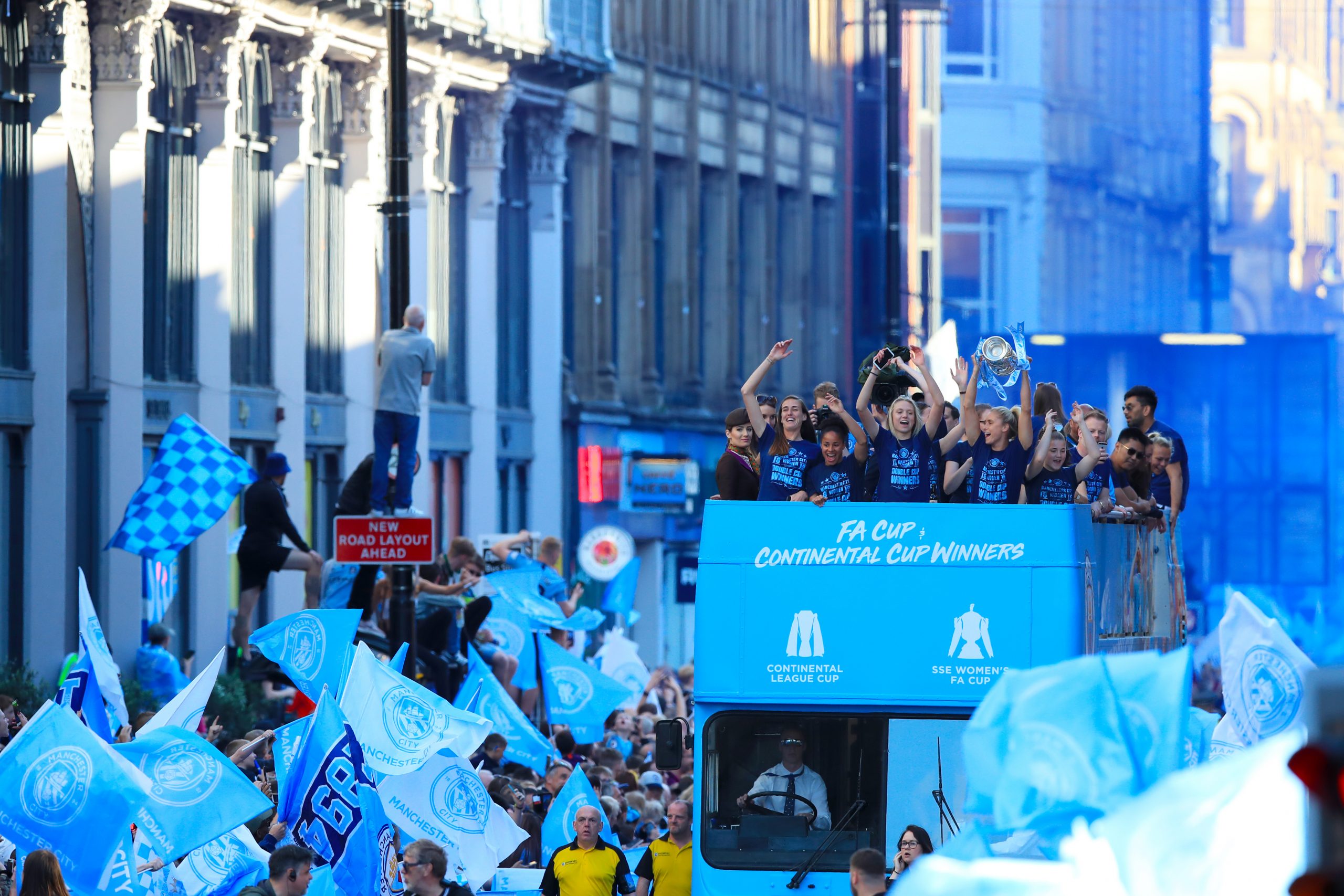What is success for Manchester City? By any measure, a domestic treble, combined with the second most points in Premier League history, has to qualify. That leaves only the Champions League, where they bowed out in the quarterfinals again to chase, and a question. Going forward, is anything, up to and including a season like the one just completed, that doesn’t include European hardware, enough?
At first glance it seems unfair to group City in a category with the handful of continental teams that dominate their competitions year in and year out. Afterall, this is only their second victory in a row. It only came by a single point, and they had to win 14 matches straight at the tail end of the season to pull it off. It seems categorically wrong to assume that City’s league dominance should be guaranteed as a starting point.
But the underlying numbers are kinder to City than the table was, an extraordinary feat given that City ran up 98 freaking points. City’s expected goals per game total was 2.00, best in the league. Liverpool were second at 1.70. Their xG conceded per match was also tops in the league with 0.56, Liverpool were again second with 0.76. That means that City had an xG difference of 1.44, a full half a goal a game ahead of Liverpool’s 0.94, the second best differential in the league.
To put it another way, expected goals accurately reflects the top three teams in the table, with City first, Liverpool, second and Chelsea third but their relative expected goal differences of 1.44, 0.94 and 0.54 suggest that Liverpool were a side positioned roughly between the two. Instead they pushed City to the wire finishing with 97 points, while Chelsea finished a distant third with 72. If Liverpool had had an average season instead of a great one, City might have wrapped up the league with weeks to go, walking to the finishing line for the second season in a row. In that context, it’s fair to at least consider examining City in the same light as Juventus, PSG or Bayern Munich. Those are teams that can be pushed, or even caught, if everything goes right for a challenger, but start the season as presumed champions until a plucky underdog can convince the world otherwise.
It’s hard to overstate just how dominant City were in the league. The difference between their xG and Liverpool’s was the same as the difference between Chelsea, the third best attack, and Crystal Palace, the 13th. Defensively, their heatmap looks like this. I mean come on. Give somebody else a chance.
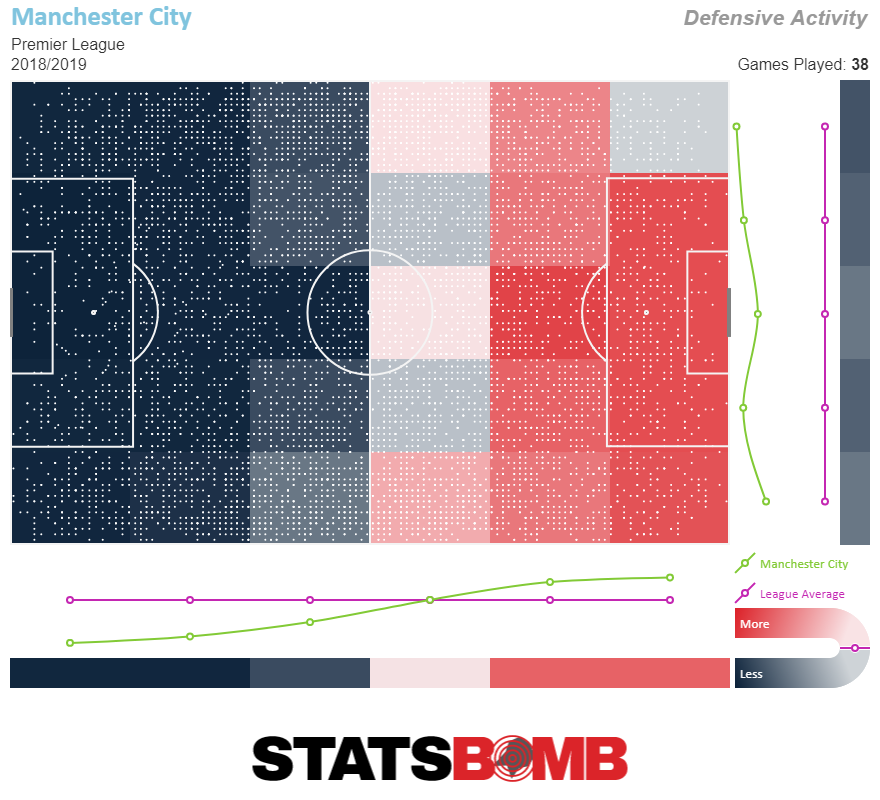
This Manchester City team is so scary precisely because their season was dominant without seeming in anyway to be above average for their talent. It’s true that their fire breathing attack outperformed our xG model, thanks in no small part to Raheem Sterling not missing a single chance valued at 0.40 xG or above.
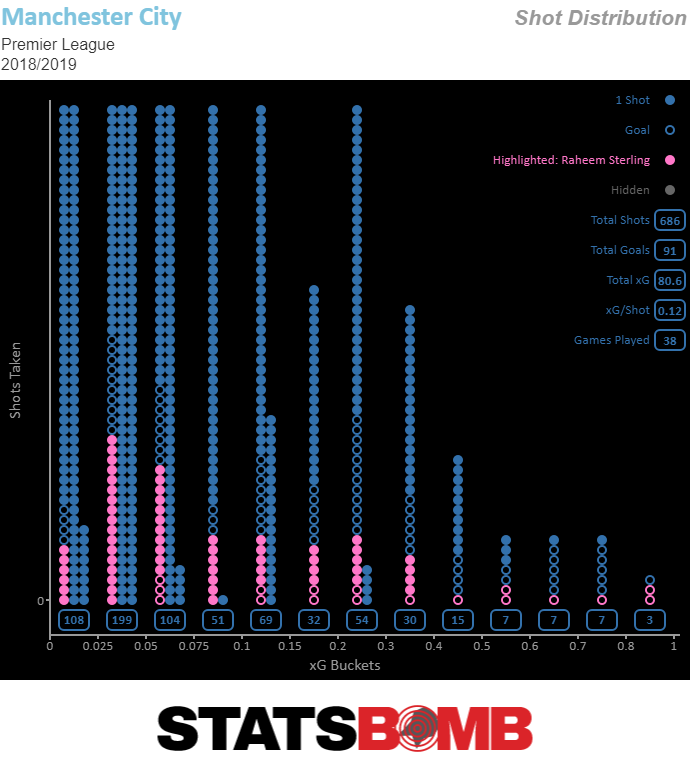
But, despite that, over the course of not just this season, but last season as well, City goal difference hewed fairly close to their xG difference. Most of their overperforming came early, and down the stretch, when they needed to be perfect, they were, without very much in the way of undue help from the soccer gods.
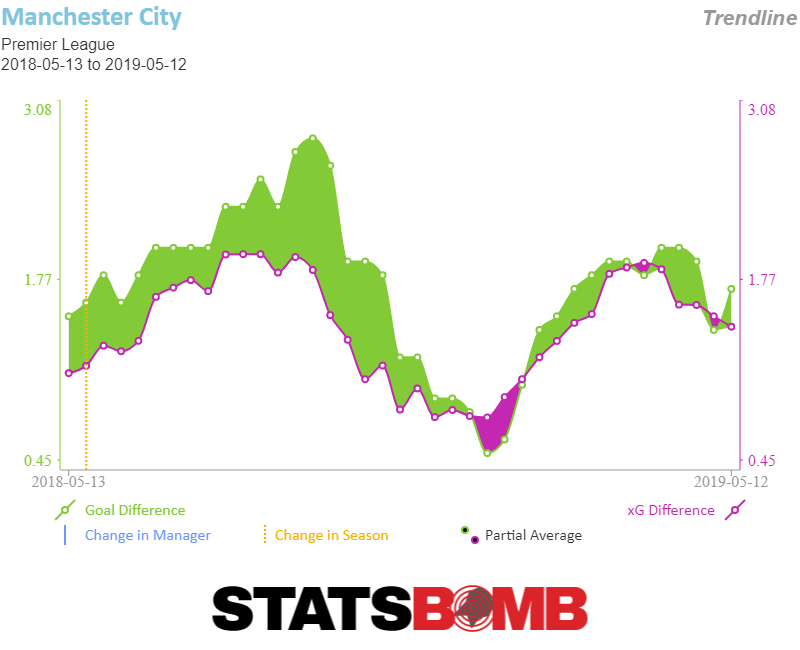
All of this doesn’t matter all that much when looking backwards. The 2018-19 season is going to go down as one of the best title races in history, a three month long staring contest where nobody blinked. But, when looking forward it’s quite clear that City are more likely to win the league comfortable next season than they are to get run down by Liverpool, excellent though Jurgen Klopp’s team may be.
That’s before we even begin to look at what City might do to strengthen the side this summer. How exactly do you improve on a team that flirted with perfection? There are two obvious places to start. Fernandinho, as has been pointed out numerous times over the last two years is both the linchpin of this midfield, and old. If anything his production actually ticked upwards this season as he was asked to do more of the work of moving the ball up the field thanks to the uneven, injury riddled season that Kevin De Bruyne experienced. His production remains astounding, but he’s 34.
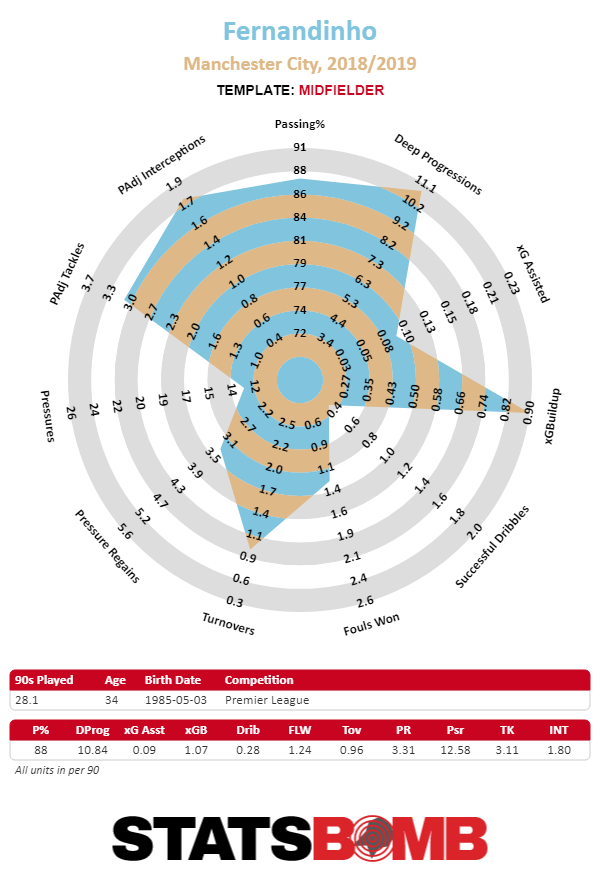
İlkay Gündoğan filled in for stretches this season, and did an admirable job, but he’s not really a defensive midfielder. Atletico Madrid’s Rodri seems to be the name their linked to now, a promising midfielder to be sure, but one who is never played in a system that will demand near the on-ball acuity that Guardiola. If Fernandhino has another season in him, which allows his backups to get minutes and experience where appropriate and get worked into the system that might work fine, but if Rodri, if he ends up being the guy, needs to step into those enormous shoes immediately, expect some growing pains.
Elsewhere, Vincent Kompany is going home to become player manager at Anderlecht, ending an era in Manchester. But, given the presence of Aymeric Laporte, John Stones, and Nicolas Otamendi, City again have room to ease in whatever younger prospect they might acquire to fill his shoes (to say nothing of Guardiola’s flirtations with deploying Fernandinho as a hybrid center back and defensive midfielder this season). The one possible weak spot that City really could upgrade is the left side of defense. Over the course of the season all of Benjamin Mendy, Fabian Delph, Danilo, Laporte and Oleksandr Zinchenko have seen minutes there. Given the team’s success, it’s the smallest of nits to pick, but the lack of one to two reliable options in that position has at times given the teams tactical hurdles to overcome.
It would be surprising to not see City address these potential weaknesses this summer. Their endlessly deep pockets mean they can go grab players who are stars elsewhere, and deploy them as rotation options for Pep Guardiola. That is, in effect, what they did with Riyad Mahrez this year, who went from being the creative engine for Leicester City, to a regular contributor, but not automatic starter for this City side. Mahrez was on the field for 1435 minutes, the 12th most on the team.
There are some possible bigger picture questions that loom on the horizon. David Silva is 33 and his ability to both be a creative maestro in the midfield and around the penalty area at the same time started to fade this season. He’s still a wizard in the box, but before too long, like Fernandinho somebody else will need to begin accepting the responsibilities he’s shouldered. Similarly, Sergio Aguero is 30, and while Gabriel Jesus is perhaps positioned to inherit the striker role eventually, despite immense numbers in a largely substitute role, he’s still relatively untested as the man at tip of the spear.
Despite those looming eventual issues, the best course of action for City seems to be to continue tinkering around the edges. Spend 70 million on an extra defensive midfielder to fold into the system here, 40 for a leftback to be first among equals. Use superstar money on players who will slot in the system, and keep the juggernaut running smoothly. The only question is will that be enough to win the Champions League, and if not does it matter.
Fairly or unfairly, teams who break the leagues they’re in get judged on the European competition. PSG are largely considered underwhelming, Bayern Munich hired Guardiola specifically to get over the Champions League hump (and then in one of the more ironic moments of European football over the last decade won the thing before he got there), Juventus have gone chasing stars, first Gonzalo Higuain, then Cristiano Ronaldo to give them the little bit of impetus to get over the top. It’s not clear that any of those teams became better chasing the Champions League, but at the same time their dominance domestically hasn’t waned.
The question going forward for Manchester City is have they transformed the big six to a big one, and if so, what comes next?
Header image courtesy of the Press Association
